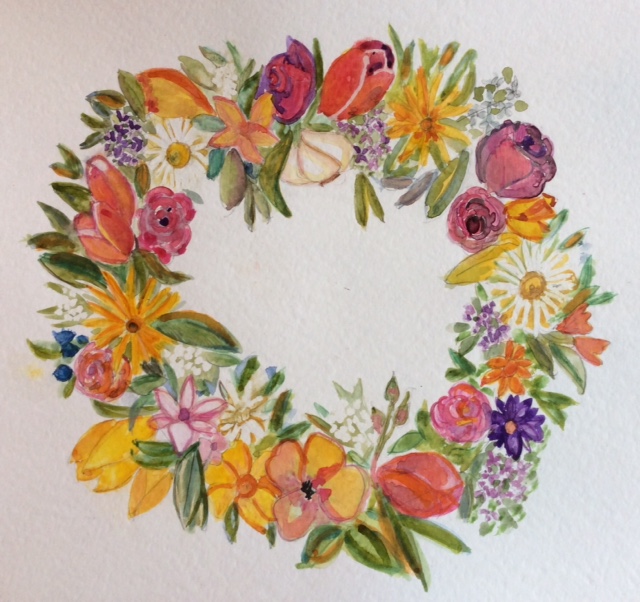Gathering wild flowers? Chopping the last of the lilac blossoms off the bush, or picking the first roses? Stealing from the neighbor’s garden or buying bunches of tulips from the roadside stand?
Everything goes when it comes to making the May wreath, a tradition dear to Greeks. Some add olive or laurel branches, and a head of garlic, to ward off the evil eye. The wreaths will adorn front doors and balcony railings, slowly drying up until the time comes to burn them on bonfires on Saint John’s day (June 23rd). Family and friends will jump over the embers for good luck.





 May Wreath by M.L.Kappa
May Wreath by M.L.Kappa